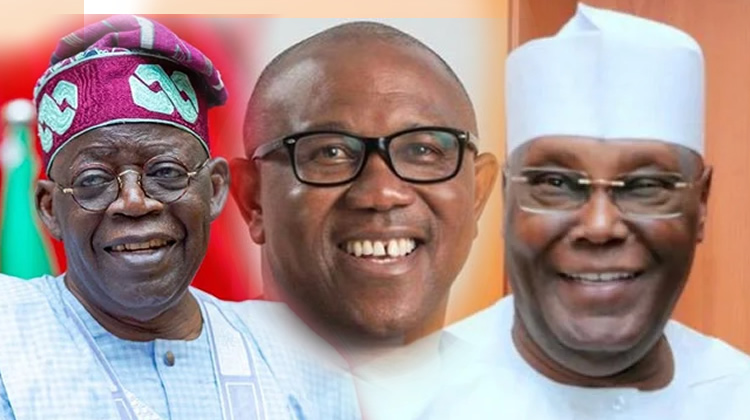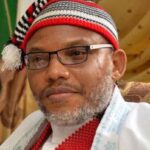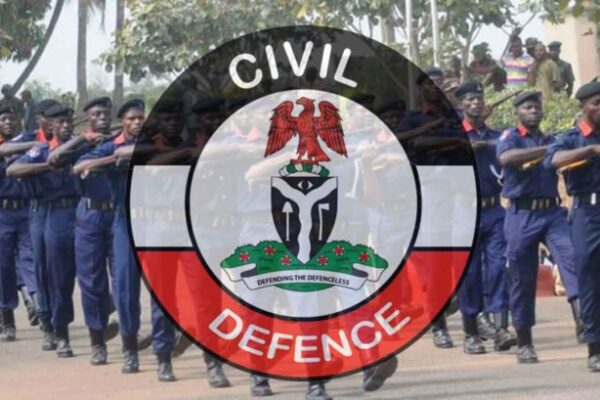Supreme Court Upholds Tinubu’s Presidential Victory After 171-Day Battle
In a momentous decision, the Supreme Court, on Thursday, brought an end to the 171-day legal dispute aimed at invalidating the election of President Bola Tinubu. The apex court rejected the election appeals lodged by Alhaji Atiku Abubakar, the standard bearer of the Peoples Democratic Party, and Peter Obi of the Labour Party.
The appeals by Atiku and Obi, which began on May 8, concluded on Thursday, October 26, effectively extinguishing their hopes of overturning Tinubu’s election victory. Chairman of the seven-man panel, Justice Inyang Okoro, delivered the lead judgment in which the Supreme Court declined to consider the academic records of President Tinubu, obtained from Chicago State University, which Atiku had hoped to present as fresh evidence to substantiate his claim of certificate forgery against the former Lagos State governor.
The other justices on the panel, namely Uwani Aji, Mohammed Garba, Ibrahim Saulawa, Adamu Jauro, Abubakar Tijjani, and Emmanuel Agim, concurred with the lead judgment, thereby dismissing Atiku and Obi’s appeals. Tinubu, elated by the Supreme Court’s verdict, welcomed the decision and called on the support of Nigerians, promising to surpass expectations in delivering his duties for the remaining years of his administration. He also praised the judiciary for withstanding pressures and intimidation from various political actors.
In the lead-up to Thursday’s judgment, Atiku and Obi had contested the September 6 ruling of the Presidential Election Petition Court (PEPC), which had dismissed their petitions and upheld Tinubu’s electoral triumph in the February 25 presidential poll. Atiku had submitted 35 grounds of appeal, while Obi filed 51 at the Supreme Court. In an attempt to substantiate his allegation that Tinubu was not qualified to contest the presidential poll, Atiku had sought an Illinois Chicago district court order to release the President’s academic records.
This claim accused Tinubu of fabricating the CSU diploma of Bachelor of Science in Business Administration awarded in 1979, which he had submitted to the Independent National Electoral Commission for the election. The United States court ordered the release of Tinubu’s academic records, which Atiku presented as part of his election petition appeal at the Supreme Court. However, the Supreme Court ruled that the constitutionally stipulated period for admitting such evidence had expired. The apex court emphasized that the 1999 Constitution, as amended, gave the PEPC a 180-day timeframe to hear and determine all petitions arising from the presidential election, which had already lapsed by September 17.
The court further argued that, considering that the PEPC had already delivered its verdict as the first-instance court in the presidential dispute, no legal provision would allow the admission of additional evidence at the appeal stage. The Supreme Court also noted that the issue of forgery, which Atiku had sought to establish with the fresh evidence, had not been pleaded in any paragraph of his appeal.
It concluded that the additional evidence did not align with the issues for determination in the appeal and refused the application. Justice Okoro also cited sections of the Electoral Act that prevented petitioners from amending their petition after the stipulated 21 days, let alone providing fresh evidence. The court held that Atiku and the PDP had not applied to amend their petition to include the forgery claim and the related evidence, emphasizing that unpleaded facts and documents had no place in deciding the dispute.
In addition, the Supreme Court maintained that Atiku had failed to prove that the Independent National Electoral Commission (INEC) had substantially violated the provisions of the Electoral Act during the election. The court underscored that election results could only be invalidated when non-compliance substantially affected the outcome of the election, as per Section 185(1) of the Evidence Act.
The court also pointed out that the evidence showed that the appellants had neglected their duty to not only demonstrate non-compliance but to establish that INEC’s failure to transmit election results through its IReV portal influenced the election outcome. The Supreme Court clarified that the failure of INEC’s IReV portal did not disrupt the collation of results, which continued to be done manually. While acknowledging that the unavailability of results on INEC’s IReV portal could undermine public trust in the electoral process, the court held that this was not sufficient grounds for nullifying an election.
Regarding Atiku’s claims of election manipulation, the court regarded the testimonies of his witnesses as hearsay, pointing out that Atiku’s agents could only testify in polling units where they were present, not across the entire country.
The Supreme Court also emphasized that Atiku and the PDP had not proven that they had suffered a miscarriage of justice due to the dismissal of their petition by the PEPC. The court dismissed the argument that Tinubu should not have been declared the winner of the presidential election due to his failure to secure 25 percent of the votes in the Federal Capital Territory, Abuja. It asserted that the FCT did not hold a special status above the 36 states of the federation and upheld the PEPC’s interpretation of the law in this regard.
Additionally, the court upheld the striking out of evidence from some of Atiku’s witnesses who testified at the PEPC hearing, categorizing most of the evidence as inadmissible hearsay. The court concluded that the appellants had not presented any evidence justifying the interference with the lower court’s findings.
The court also addressed the allegations concerning Tinubu’s involvement in a US drug-related case leading to the forfeiture of $460,000. The Supreme Court ruled that the appellants had raised this issue after the respondents had filed their processes, violating the respondents’ right to fair hearing.
In conclusion, the Supreme Court declared that Atiku’s petition had no merit and resolved all the issues raised against him. It further dismissed the application as frivolous and vexatious.
The verdict prompted reactions from various quarters. The PDP expressed disappointment and described the decision as a letdown to Nigerians’ expectations. The party criticized the court’s handling of the case and expressed concern over the verdict’s implications for electoral rules, guideline violations, and election result alterations. The Labour Party also lamented the Supreme Court’s decision, and its spokesman called for a review of the law governing policing in Nigeria to enhance security.
Prominent Nigerians set an agenda for President Tinubu, emphasizing the need to address economic challenges and prioritize reconciliation. Communication firms also called for the declaration of telecoms infrastructure as critical national infrastructure to bolster security.
Eminent figures urged the President to focus on delivering his Renewed Hope agenda, emphasizing the importance of trust and support from the citizens. Security issues and economic challenges were cited as top priorities for the administration.
In summary, the Supreme Court’s decision brings closure to a lengthy legal battle, and the nation now looks to the President for leadership, economic stability, and security solutions as he navigates the remainder of his term.












